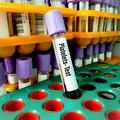
How To Order Medicine Online
Learn how to safely order prescription medicine online using these 11 essential tips that are easy to follow. Using these tips you can save more. Read More >>

Learn About Bipolar II Disorder from Version I
The difference for people with bipolar II disorder is that they don’t choose to be on the top of the world one moment, and then back down at the very depths. For people with bipolar disorder, this cycle repeats itself without mercy. Read More >>

Better Skin Healing – More on Santyl Ointment Price
Santyl Ointment is an enzymatic debriding ointment. It works by breaking down dead skin. Check Canada Drugs Direct for Santyl Ointment price & information. Read More >>

Tummy Troubles: Understanding Digestive System Diseases
Being in the best digestive health is a blessing for those who are, while digestive system disease mean things aren’t so rosy in the same way for others. Read More >>

Parasite Infection in Lungs: What to Know
Learn about parasite infections in the lungs, including symptoms and treatment options. Understand the risks and how to manage parasitic infections effectively. Read More >>

Is Thrombocytopenia a Cancer Indicator?
Find out if thrombocytopenia is linked to cancer. Explore the relationship between low platelet counts and cancer to better understand your health. Read More >>

Thrombocytopenia in Newborn Infants
Explore the causes and effects of thrombocytopenia in newborn infants. Learn about alloimmune thrombocytopenia and its implications for newborn health. Read More >>

Does Shaving Cause Hyperpigmentation
Discover if shaving can cause hyperpigmentation. Learn about the causes of skin discoloration after shaving and how to prevent it. Read More >>

Viral Hepatitis from Mononucleosis: What to Expect
Discover the connection between viral hepatitis and mononucleosis. Learn how mono can lead to hepatitis and what symptoms to watch for. Read More >>

Psoriasis vs Syphilis: Key Differences
Understand the differences between psoriasis and syphilis. Learn how to distinguish between these conditions based on symptoms and treatments. Read More >>



